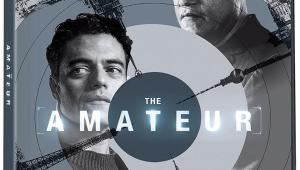Senators Cave to NAB
Committee members voted down a proposal by Committee Chairman John McCain that would have required broadcasters to return their analog licenses by 2009. McCain's plan would have transferred use of much of the freed spectrum to public safety and emergency communications use, very much in keeping with a current Federal Communications Commission (FCC) proposal to end analog TV broadcasting by December 31, 2008. That issue comes up for an FCC vote November 9.
The Commerce Committee instead voted 13-9 to pass a plan backed by the National Association of Broadcasters (NAB) and sponsored by Senators Conrad Burns (R-MT.) and Ernest Hollings (D-SC) that would require TV stations to return only 24MHz of spectrum (channels 63, 64, 68 and 69) by December 31, 2007 for public safety communications.
The NAB had voiced concerns about low-income viewers - those without either satellite or cable feeds—who could lose free over-the-air TV should the transition to digital take place too quickly. McCain's plan included up to $1 billion in subsidies to provide DTV-NTSC converter boxes for such viewers.
The shutoff date for analog broadcasting has been pushed back continuously since the changeover to digital was announced several years ago. It was originally set for December 31, 2006, or whenever 85% of viewers were within the "footprint" of DTV transmissions.
Broadcasters were given 6MHz of free bandwidth for DTV, on agreement that their analog licenses would be returned for auction by the FCC. They have stalled on upholding their end of the bargain ever since and have lobbied relentlessly against every proposed deadline. Some critics dismissed the Commerce Committee vote as "cowardly," and public interest groups denounced it as "endangering national security." NAB spokesmen praised it for protecting consumers.

























































